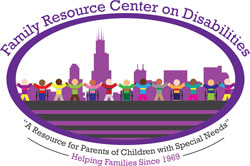Writing the IFSP
Guiding principles
The IFSP is a written document that, among other things, outlines the early intervention services that your child and family will receive. One guiding principal of the IFSP is that the family is a child’s greatest resource, that a young child’s needs are closely tied to the needs of his or her family. The best way to support children and meet their needs is to support and build upon the individual strengths of their family. So, the
IFSP is a whole family plan with the parents as major contributors in its development. Involvement of other team members will depend on what the child needs. These other team members could come from several agencies and may include medical people, therapists, child development specialists, social workers, and others.
What info is included in an IFSP?
Your child’s IFSP must include the following:
- Your child’s present physical, cognitive, communication, social/emotional, and adaptive development levels and needs
- Family information (with your agreement), including the resources, priorities, and concerns of you, as parents, and other family members closely involved with the child
- The major results or outcomes expected to be achieved for your child and family
- The specific services your child will be receiving
- Where in the natural environment (e.g., home, community) the services will be provided (if the services will not be provided in the natural environment, the IFSP must include a statement justifying why not)
- When and where your son or daughter will receive services
- The number of days or sessions he or she will receive each service and how long each session will last
- Who will pay for the services
- The name of the service coordinator overseeing the implementation of the IFSP
- The steps to be taken to support your child’s transition out of early intervention and into another program when the time comes.
- The IFSP may also identify services your family may be interested in, such as financial information or information about raising a child with a disability.
Informed parental consent
The IFSP must be fully explained to you, the parents, and your suggestions must be considered. You must give written consent for each service to be provided. If you do not give your consent in writing, your child will not receive that service.
Reviewing and updating the IFSP
The IFSP is reviewed every six months and is updated at least once a year. This takes into account that children can learn, grow, and change quickly in just a short period of time.
Information taken from the Center of Parent Information and Resources Updated, March 2014 A legacy resource from NICHCY
